Is PEPEROMIA Plant Safe or Poisonous to Cats?
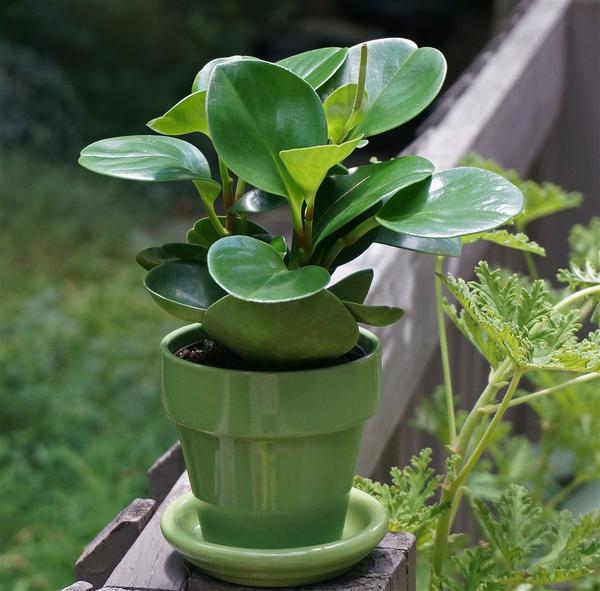
Worried sick about your fur baby's safety?
Trust me, I feel ya.
We all have those late-night Google sessions where we play out worst-case scenarios in our heads.
"Is peperomia safe for cats?"
You're not alone in asking that question, my friend. 😊
It's natural to be concerned about something so precious.
But fear not!
I promise we'll get to the bottom of this together.
So, let's dive in and give you some peace of mind, shall we?
Which Types of Peperomia Are Safe for Cats?
Here are 10 cat-safe varieties of peperomia to consider:
- Peperomia Argyreia.
- Peperomia Obtusifolia.
- Peperomia Rotundifolia.
- Watermelon Peperomia.
- Peperomia Caperata.
- Peperomia Ginny.
- Variegated Peperomia.
- Red Edge Peperomia.
- Baby Rubber Plant (Peperomia obtusifolia).
- Ripple Peperomia (Peperomia caperata).
While these peperomia varieties are generally safe for cats, you need to monitor your feline friend's ingestion of plant matter as some cats may still experience digestive issues.
Avoid placing peperomia plants in direct sunlight and take care not to overwater them.
And there you have it! 🌿
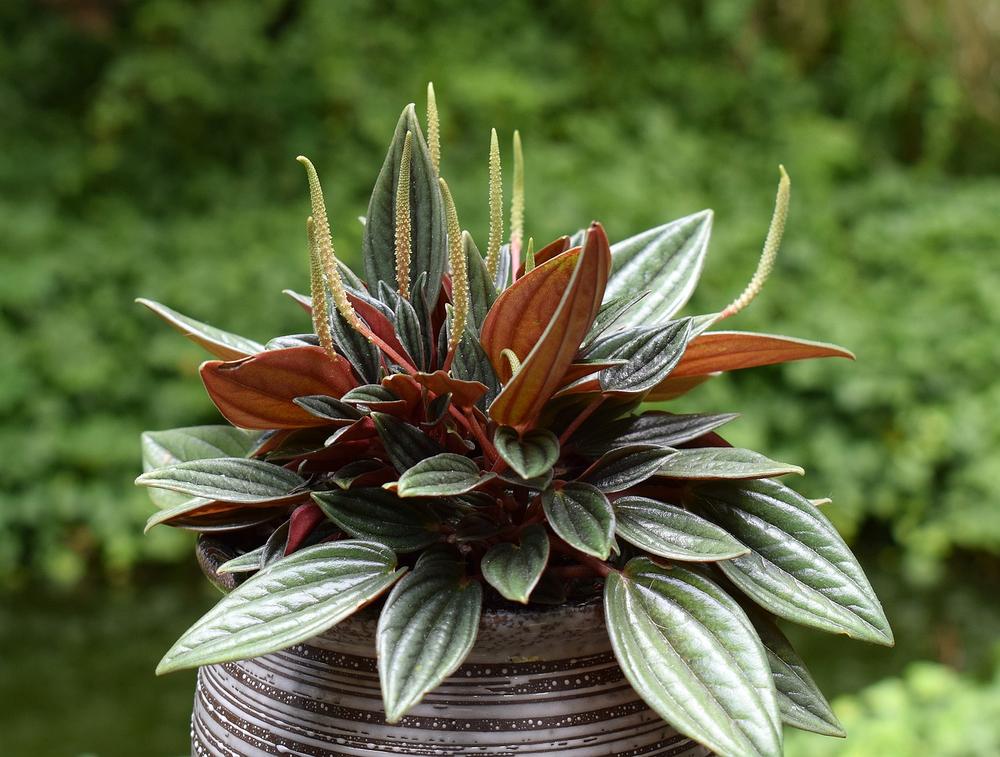
A list of safe peperomia varieties that can bring some greenery into your home without posing a risk to your furry companion.
With that being said, always pay attention to your cat's behavior and consult with a veterinarian if you have any concerns about their well-being.
But while peperomia plants are generally safe for cats, you should understand the potential risks associated with excessive consumption and the importance of avoiding plants with harmful chemicals.
Let me explain further.
Is Peperomia Toxic to Cats?
Peperomia plants won't harm your cats, confirmed by the ASPCA. 😺
Yep.
These lovely greens won't make your feline pals sick.
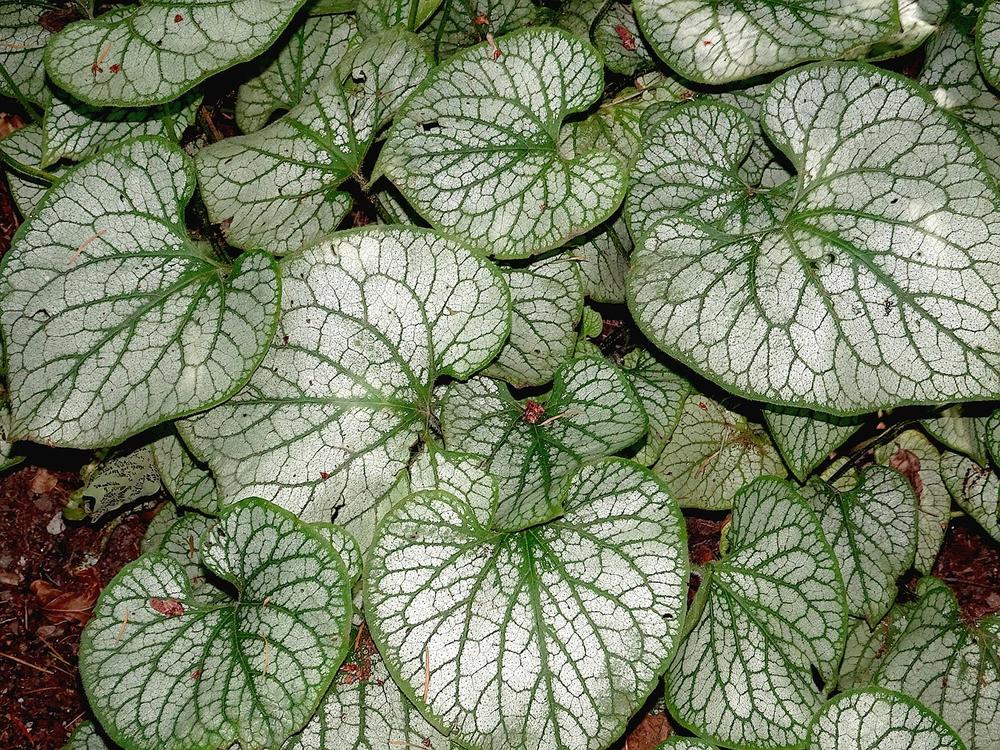
No smelly sap, no dangerous toxins to be found.
Just don't let them go overboard with the munching, keep an eye on them.
Now, let's uncover some cool stuff about peperomia plants:
- They don't have any nasty chemicals that could poison your kitty—no saponins or calcium oxalate.
- It's always wise to double-check your plants, even if they're labeled safe by the ASPCA.
- Remember, your furry canine friends are safe too, so no worries there.
- If you want some extra pizzazz, go for peperomia varieties like the red-edge or watermelon ones!
- Taking good care of your peperomia plant is crucial—give it enough light, water, and well-draining soil.
So, now you know that peperomia plants are paw-sitively fine for both cats and dogs, as long as you don't go crazy.
Keep those gorgeous greens around and enjoy their beauty worry-free!
Symptoms of Peperomia Poisoning in Cats
Peperomia poisoning in cats isn't common, but you need to know the symptoms to be on the lookout for.
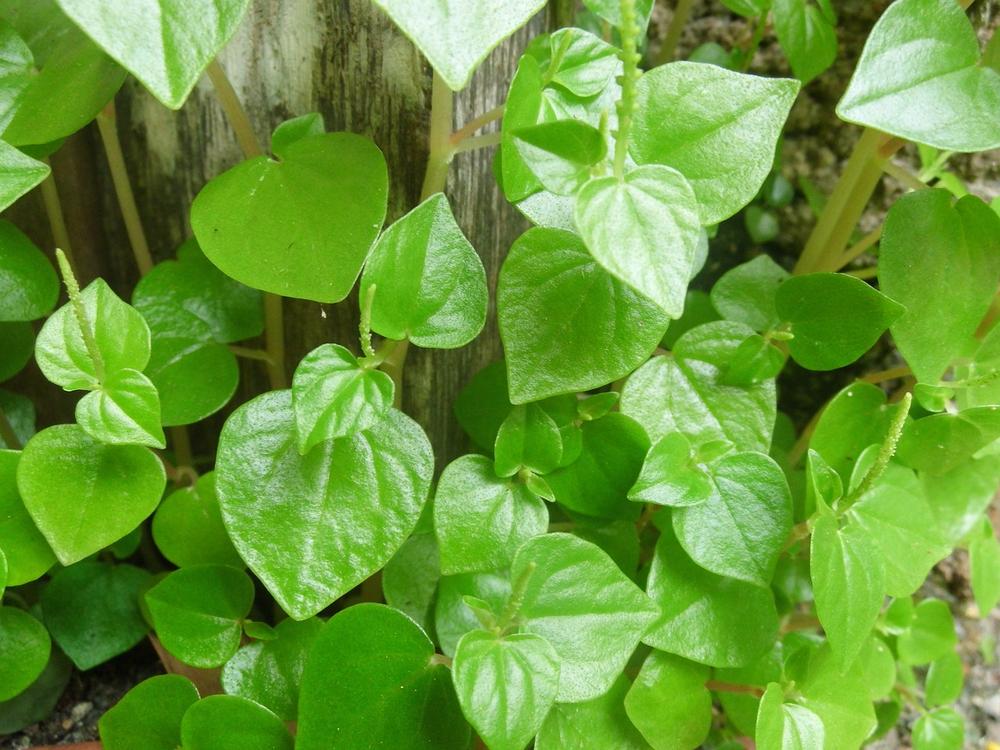
Here are some signs that your cat might have peperomia poisoning:
- The urge to barf: If your feline friend gulps down peperomia, they might start puking, which is their body's way of trying to rid itself of those nasty toxins.
- Gushy goopy poo: Another clue of peperomia poisoning is diarrhea, and it can be more watery and frequent than usual.
- Feeling tired and wimpy: Due to the effects of peperomia toxins, your kitty may seem sleepy and lackluster, with little oomph.
- Not hungry for noms: Peperomia poisoning can cause your cat to lose their appetite or eat less than they used to.
- Grumpy furball: Cats under the influence of peperomia poisoning may become easily irritated and agitated.
Bear in mind that although peperomia is generally considered non-toxic, cats can still have a bad reaction if they chow down large amounts.
If you suspect your cat has peperomia poisoning, it's wise to seek guidance and treatment from your vet.
Don't take chances!
Common Houseplants Toxic to Cats
Peperomia plants are safe for your feline companions.
Unlike rubber trees, also known as Ficus Benjamina, which can cause serious health issues for cats.
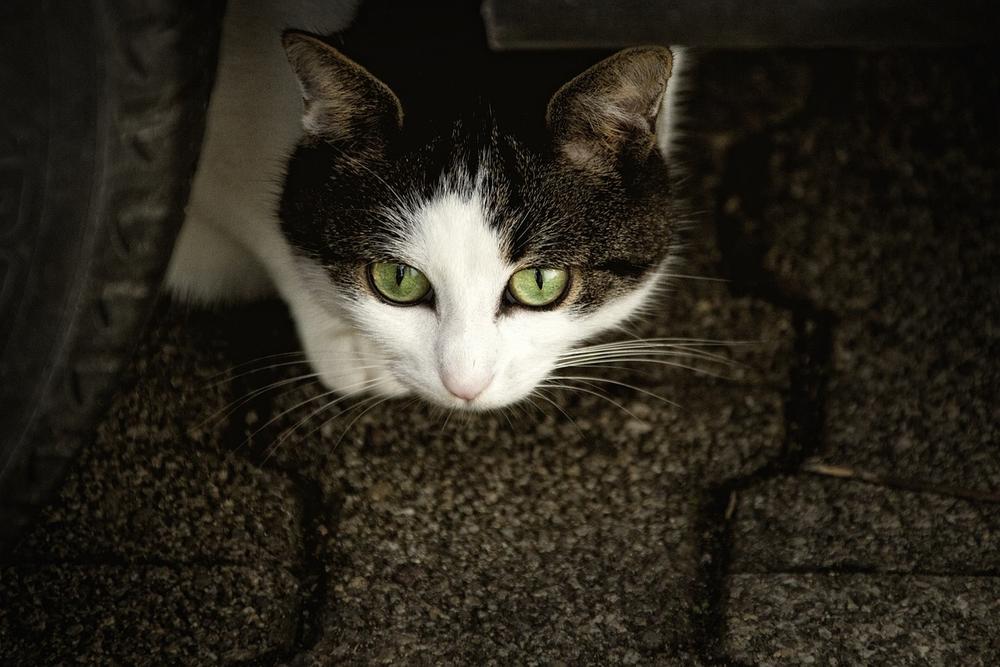
Certain houseplants can lead to stomach problems, kidney failure, and even death in our furry friends. It is of utmost importance that you keep an eye on the indoor plants your cat interacts with.
Being aware of the potential dangers they pose ensures their well-being.
So, when it comes to choosing plants for your home, opt for peperomia instead of rubber trees, because keeping our beloved cats safe is a responsibility we must never overlook.
Cat-Friendly Alternatives and Plant Variety
If you're bored with your current cat-friendly plants, consider adding the Prayer Plant and Peperomia to your collection.
You don't have to worry about these plants being toxic to your furry friend, so it's a win-win.
Peperomia is especially great for apartments where pets are allowed.
They have similar care needs as the Prayer Plant but come in different shapes, sizes, and colors.
The best part?
They love indirect sunlight and don't need much water.
If your cat has a habit of chewing on plants, you should try giving them some cat grass like wheatgrass or catnip.
This not only satisfies their nibbling urges but is also safe for them.
And if you still want more options, I've put together a list of 10 easy-to-maintain cat-friendly indoor plants for you.
There's even another separate list available of plants that won't harm your kitty.
So go ahead and create a lush green space that both you and your cat will adore!
And if you're curious about whether lemongrass is safe for cats, I have written a helpful blog post that can provide you with the answers you need.
In my guide, Is Lemongrass Safe for Cats, you can find all the information you seek.
How to Keep Your Cat Away From Peperomia Plants
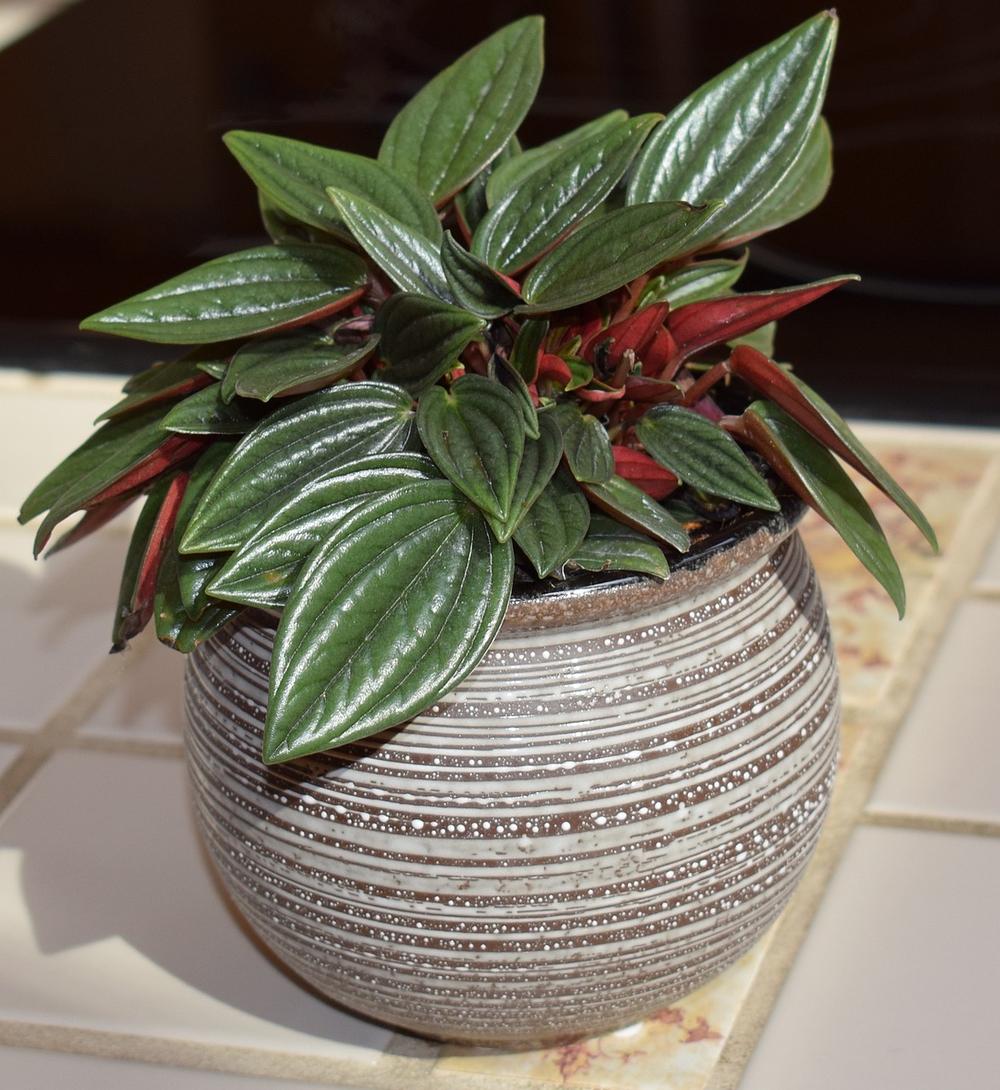
Here's how to keep your cat away from peperomia plants:
- Put the plants in a separate room where your cat can't get to them, or raise them up high so they're out of reach.
- Watermelon peperomia does best with indirect sunlight and should only be watered when the soil is dry in winter. Make sure to water it regularly but not too much.
- Trim off any damaged or wilted leaves on the peperomia to keep it looking good and healthy.
- If your pets like to nibble on the plant, make sure to keep it away from their reach. Hang it up or put it somewhere high.
- You can also use a cat deterrent spray around or on the peperomia to discourage your cat's interest. These sprays usually have natural ingredients that cats don't like.
- Even though peperomia is generally safe for cats, it's still a good idea to keep all plants away from them to avoid any potential issues.
Adhering to these suggestions will ensure the safety of your peperomia plants while keeping your pets content.
When to Contact a Veterinarian
When to Reach Out for Veterinary Assistance
Your furry friend means the world to you, and you want to ensure their well-being at all times. That's why you need to know when to contact a veterinarian for assistance. Here are a few scenarios where reaching out for help is essential:
Suspected ingestion of harmful plants
We all know cats can be curious creatures. If you suspect that your feline friend has consumed any harmful plants or is showing signs of illness after coming into contact with certain flora, you ought to seek veterinary assistance promptly. They can provide the necessary guidance on how to address the situation and ensure your cat's health isn't compromised.
Animal poison control incidents
Accidents happen, and sometimes our pets get themselves into situations they shouldn't. In case of an animal poison control incident, the ASPCA offers a 24/7 hotline that you can reach out to for immediate support.
With professional advice just a phone call away, you can put your mind at ease and take appropriate action to safeguard your pet's well-being.
Toxic plant consumption
Certain plants can be toxic to cats, and if you believe your four-legged companion has ingested something harmful, don't delay in seeking veterinary assistance. Take them to the vet or an emergency clinic as soon as possible for identification and proper treatment. Time is of the essence in these cases, so act swiftly to give your pet the care they need.
It's always better to err on the side of caution when it comes to your pet's health.
Don't hesitate to reach out to your veterinarian or a pet poison control hotline if you have any concerns about potential toxicity. You know your pet best, so trust your instincts and prioritize their well-being.
Well, now that we know when to reach out for veterinary assistance and prioritize our cat's health, let's dive into some important precautions and tips to keep in mind when handling peperomia plants.
Trust me, you don't want to miss these!
After all, keeping our furry friends safe is always a top priority, and with a few simple measures, we can ensure both their well-being and the beauty of our green companions!
So, are you ready to discover how to handle peperomia plants like a pro?
How to Protect Yourself When Handling Peperomia
Here's how to stay safe when working with peperomia plants:
- If you're prone to skin irritation, wear gloves.
- Keep peperomia away from horses to avoid damage.
- Don't overwater to prevent losing leaves.
- Master the art of watering correctly.
- Always wear gloves when handling peperomia.
- This is particularly crucial if you're sensitive to plant sap or using pesticides.
- Whether dealing with sick plants or using pesticides, never skip the gloves.
- After handling potentially contaminated plants, scrub your hands meticulously.
Moreover, you must wash your hands after dealing with any plant that might have microbial issues.
This ensures the safety of other plants by avoiding contamination spread.
It's about safeguarding yourself and your precious plants.
Do take these precautions seriously.
Now, let's explore the enchanting world of peperomias! 😊
Conclusion
Key Takeaways:
- Peperomia plants, such as Peperomia Rotundifolia and Watermelon Peperomia, are generally safe for cats.
- Commonly found nursery varieties of peperomia are considered non-toxic to both humans and animals.
- The ASPCA confirms the non-toxicity of peperomia plants for cats and dogs.
- Cats may experience digestive issues and stomach upset if they consume plant matter.
- Rubber trees (Ficus Benjamina) and other hazardous plants should be avoided.
- Peperomia plants thrive in indirect sunlight and require little watering.
- If your cat tends to chew on plants, consider providing cat grass or catnip as alternatives.
- Pruning and keeping peperomia plants out of reach helps prevent cat ingestion.
- Contact a veterinarian if your pet ingests harmful plants and use the ASPCA hotline for poison control incidents.
- Proper watering techniques and gloves should be used when handling peperomia plants.
And that wraps up today's article.
If you wish to read more of my useful articles, I recommend you check out some of these: Can Cats Eat Grasshoppers, Can Cats Drink Coconut Milk, Can Cats Eat Sugar, Can Cats Drink Lactose Free Milk, and Can Cats Eat Pretzels
Talk soon,
-Sarah Davis